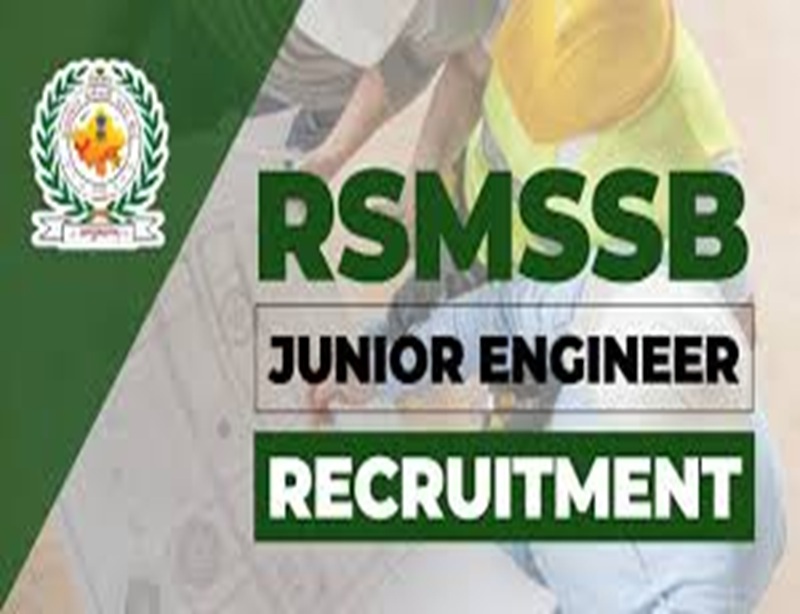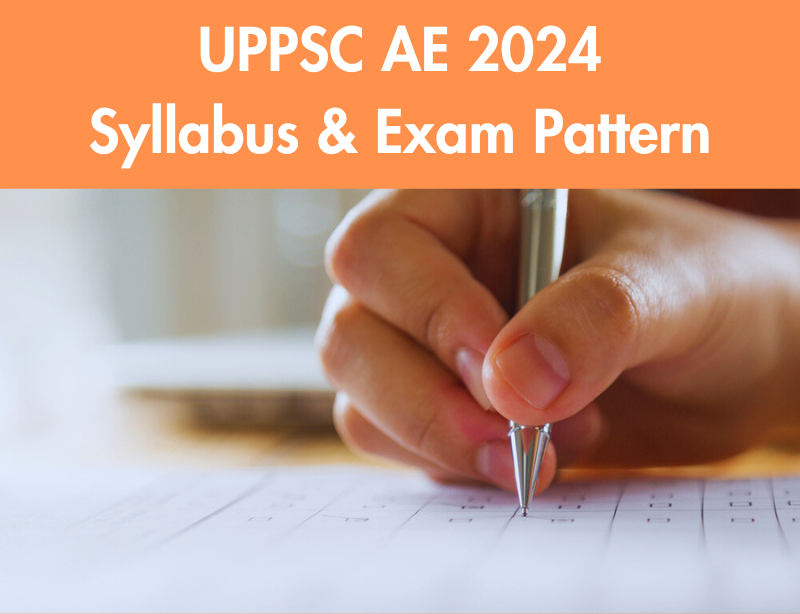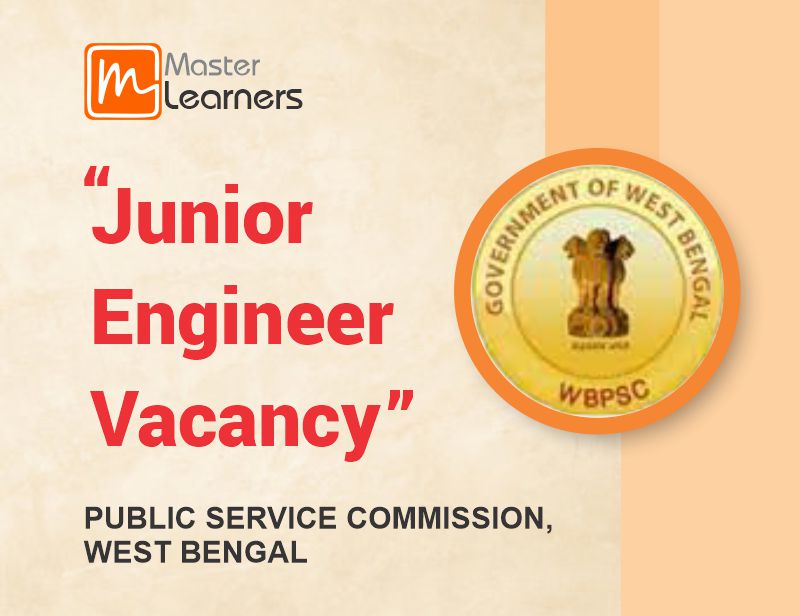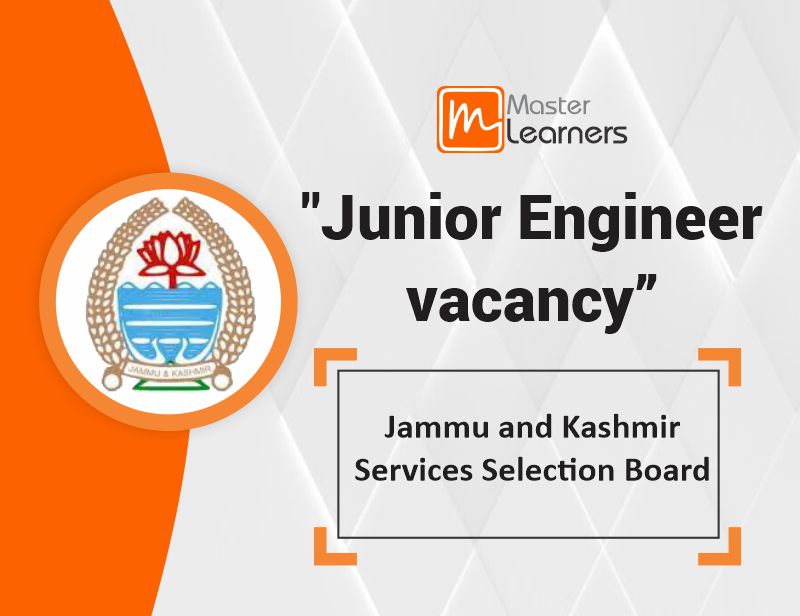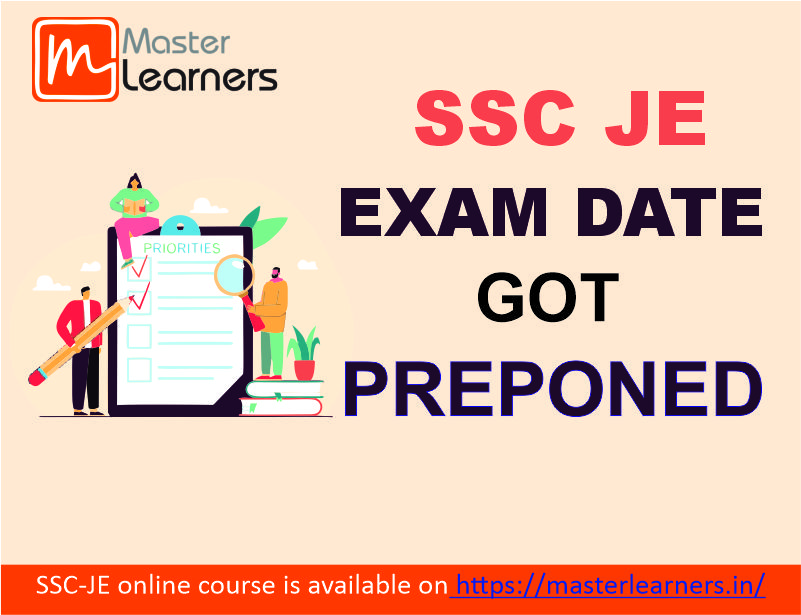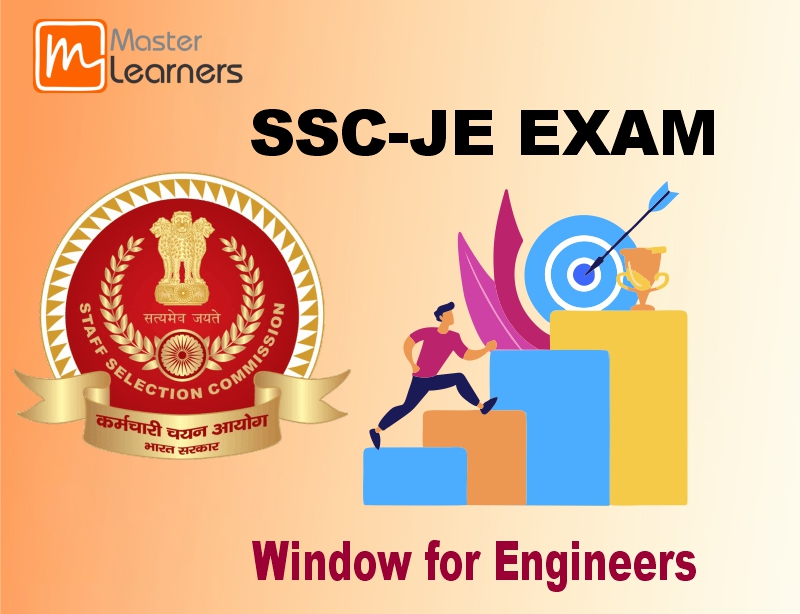Notification
On 16th Nov. 2022 Public service commission, West Bengal issued advertisement no. 9/2022 on their website https://wbpsc.gov.in/advertisement.jsp. As need cropped up for services of junior engineer in various government department of Bengal, so government has invited online applications to recruit for various posts.
The vacancy details are yet to be notified and same will be announced by public service commission, west Bengal in consultation with government departments.
IMPORTANT DATES
|
S. No
|
Particulars
|
Date
|
|
1
|
Commencement for submission of Online applications
|
16th November, 2022
|
|
2
|
Closing date of Online Application
|
07th December, 2022
|
|
3
|
Closing date of application through offline mode
|
08th December, 2022
|
|
4
|
|
|
|
5
|
Calculation of Age limit for eligibility
|
01st January, 2022
|
|
6
|
Domicile certificate date
|
On or before the last date of application submission date.
|
The advertisement no. 9/2022 comprises various detailed terms and conditions regarding eligibility, educational qualification, and fee of the examination. We have enumerated the important ones in easy and lucid language to convey the gist of this notification to students. Some important points from the notification are explained in this blog, read it and be aware. The detailed notification can be checked on
Age limit will be calculated as on 01.01.2022. The criteria of age limit have been categorized into two sections. One is for general category & other for various reserved categories.
|
S. No
|
Categories
|
Age limit
|
|
1
|
General age
|
36
|
|
2
|
Age for reserved category (SC & ST)
|
5 Years relaxation & if person belongs to physically disabled category 7 Years.
|
Qualification required:
Civil Engineering: Diploma in Civil Engineering from the State Council for Engineering and Technical Education, West Bengal, or its equivalent.
echanical Engineering: Diploma in Mechanical Engineering from the State Council for Engineering and Technical Education, West Bengal, or its equivalent.
Electrical Engineering: Diploma in Electrical Engineering from the State Council for Engineering and Technical Education, West Bengal, or its equivalent.
Scheme of Examination: The examination will consist of Objective type, Multiple choice questions. The question paper will be provided in English language only. Negative Marking will be there as per the notification.
How to submit the application
Application would be submitted in online mode only, and submission of more than one application leads to cancellation.
No. of Vacancies: Not clearly mentioned in the notification.
Syllabus For Written Test for Recruitment to The Post Of Junior engineers
Civil Engineering
- Strength Of Materials
Centre of gravity of plane figures, composite rectilinear figures, simple structural sections, M.I. of lamina, composite areas & of simple structural sections, simple stresses & strains, Characteristics of stress-strain curve for Mild Steel, S.F. and B.M. diagrams of loaded beams (fixed beam excluded), Bending & Shear stresses of beams, slope and deflection of cantilever and simply supported beams (point load & UDL), direct & bending stress, Eccentric loading on masonry pillars.
- THEORY OF STRUCTURES
Different types of frames-perfect, redundant & deficient, difference between statically determinate and statically indeterminate frames, Analysis of perfect frames, different methods (names only), Gravity structures – Dams & Retaining Walls (Rectangular & Trapezoidal sections), conditions of stability, Different types of failure of a Dam, Critical load on Columns – Euler’s, Rankine’s & B.I.S. Code formula.
Concrete Structures
Working stress method of design of simply supported R.C.C. rectangular beams (singly & doubly reinforced) and slabs (one way & two way), Cantilever slabs, singly reinforced T-Beams - Design of Reinforcements, Design of axially loaded R.C.C. short columns (square, rectangular & circular) by I.S. Code Formula, Isolated R.C.C. square footing of column, Basic Concept of pre-stressed concrete – Materials used.
Steel Structures
Design of rivetted joints, Failure of rivetted joints, Eccentric rivetted connections (brackets), Design of rolled steel beams in flexure & shear for a given load, design of axially loaded columns using standard rolled I-sections with or without plates, Design of simple truss.
Timber Structures
Design of simple structures.
3. CONSTRUCTION MATERIALS & PRACTICE
BUILDING MATERIALS
Bricks – Traditional & Modular, Size & Weight, I.S. Classifications, Testing of Bricks, Mortar & Concrete – different types, Usual proportions, Specific uses, Slump of concrete, Recommended values of slump for various works, Water-Cement ratio – its effect on strength of concrete, Curing of concrete, Sources and uses of stone, Sand & lime, Mosaic Tiles & Roof Tiles, Period of curing timbers, Commonly used timber in engineering works & their specific uses, Uses of plywood, Laminated Board, Block Board, Particle Board, Expanded metal, Polymer, Plain & Frosted glass, Paints & Varnishes.
CONSTRUCTION
Foundation, Object, Shallow & Deep Foundation, Names of different types, their uses in specific locations, Brick Masonry works, General principles & precautions, reinforced brick work, its advantages, damp proofing – materials used, causes & effect of dampness, roofs and roof coverings – different types – uses at specific locations, flooring, doors & windows – different types – uses at specific locations, Stairs, different types (names only), their uses at specific locations, requirements of a good stair as per N.B.C., Scaffolding, Shoring, Underpinning, Formwork – materials used, characteristics of good formwork, rules for removal of formwork, Common construction equipments.
4. FIELD SURVEYING
Metric surveying chain, types – different types, uses, Triangulation and Traversing, Tie line, Check line & Base line offsets – different types, Field book entry, Right angle setting in field with instruments and with chain or tape.
Compass – different types, uses, bearing, W.C.B. & R.B., Fore & Back bearing, Local attraction, Declination, Dip, closing error of a compass traverse, causes, adjustment, permissible error in compass surveying.
Plane Table survey – suitability, advantages & disadvantages, methods of plane tabling, equipments necessary. Levelling, types of level & leveling staff (names only), temporary adjustment of level, reduction of level, level book entry, reciprocal and profile levelling, correction for curvature & refraction, contouring, definition of contour, contour interval & horizontal equivalent, characteristics of contour lines, uses of contour map, methods of contouring (names only).
Theodolite Survey – different types of theodolites, important terms in connection with theodolite, uses of a theodolite, theodolite traversing, latitude & departure, closing error in a theodolite traverse, adjustments, permissible limits of error.
Curve setting – degree & radius of a curve, their inter-relation, elements of a simple curve, classification of curves.
5. Estimating, Costing & Contracts
Specification of works and materials, Estimates, different Types, general items of works, Units of measurement for building works as per B.I.S. Code, method of measurement for different items of work and materials, present market rates of materials & unit rate of items of work, floor area, carpet area and plinth area, F.A.R., Rate analysis – factors governing it, schedule of rates, analysis of rates for different items of works of a building.
Contracts – different types, Contract documents, submission & opening of Tender, earnest money, security deposit, measurement book, work order book, imprest and temporary advance, material at site account, suspense account.
Valuation, functions of a Valuer, factors affecting the value of a property, value & cost, scrap value, salvage value, assessed value,
speculative value, sinking fund, depreciation.
6. PUBLIC HEALTH ENGINEERING
WATER SUPPLY
Sources of water, ground water (springs, infiltration galleries & wells), Acquifer, Tube-wells – methods of boring, development of Tube-well, determination of tube diameter, length and diameter of a strainer, Motor & Hand Pump. Water requirements per capita demand, domestic, industrial & fire demands, population forecast. Intake works & transportation of water, Purification of Water, Removal of Salinity, Arsenic & iron. Raw water and Treated Water Quality. Treatment of water – plain sedimentation, feeding and mixing of coagulants, flocculation devices & clariflocculators, filters – rapid & slow sand filters, removal of hardness, disinfections– methods & applications. Different Pipe materials, Distribution of Waters, different systems & their applications, different appurtenances of distribution systems, guiding regulations of service connections according to Bengal Municipal Act.
SANITARY ENGINEERING
Elementary knowledge of Water & Air Pollution and Control. Classification of waste, necessity of waste disposal, different systems of Transportation of sewage, Sewers – Types, Sewerage, Sewer appurtenances, laying of sewers, quantity of sewage – domestic, industrial, storm water & ground water infiltration, estimation of run off, time of concentration, characteristics of sewage – Physical & Chemical (e.g. pH, colour, odour, turbidity, BOD, COD, nitrogen, chloride), sewage treatment processes - aerobic & anaerobic treatment, sewage treatment units, activated sludge process, trickling filter, septic tank, Rural Sanitation, Solid Waste disposal methods.
7. IRRIGATION
PRINCIPLES OF IRRIGATION
Necessity & benefits of irrigation – its ill effects, types of irrigation systems, methods of irrigation – surface irrigation, sprinkler irrigation and sub-surface irrigation.
HYDROLOGY
Measurement of rainfall – Symon’s rain gauge, average rainfall over an area by arithmetical mean method, Thiessen polygon method and Isohyetal method, Run off - factors affecting it.
WATER REQUIREMENT OF CROPS
Duty, Delta and base period – their inter-relations, factors affecting duty, methods of improving duty, commanded area, capacity factor, time factor, outlet factor, crop ratio, overlap allowance.
CANALS
Classification of canals, canal linings – Types and advantages, different parts of irrigation canals – their functions, designs of canal sections for a given discharge (using Kennedy & Kutter’s formula), Design of canal sections by using Manning Formula, Canal structures.
WELL IRRIGATION
Shallow and deep wells, yield from a well, advantages & disadvantages of well irrigation.
TUBEWELL IRRIGATION
Piped Water Irrigation, Design of Pipelines, and losses.
CROSS DRAINAGE WORKS
Aqueduct, super passage, siphon aqueduct, level crossing.
HEAD WORKS
Object, layout and functions of head works, classification of dams, different types of earthen dams, causes of failure of earthen dams and safety measures, difference between weir, barrage, and dams.
FLOOD CONTROL
Methods of flood control, reservoirs, flood walls, channel improvements, floodways. Cause & effect of flood.
RIVER TRAINING WORKS
Objectives, different types, guide bank, spurs, groynes, pitching, revetment, rip-rap.
8. ROADS & HIGHWAYS
INTRODUCTION
Classification of rural (non-urban) & urban roads as per I.R.C., terrain classification as per I.R.C.
ROAD GEOMETRICS
Road alignment, vertical and horizontal curves. Cross-sectional elements, recommended land width for different classes of roads, recommended speeds, Camber-objective-recommended values of camber for different types of roads, Gradients for roads in different terrains, Grade compensation at curves on hill roads, super-elevation-objects, transition curves objects, sight distance, different types, perception time, brake-reaction time, lag time, lag distance. Equipments used in road construction.
EARTH WORK
Cutting, filling angle of repose, allowance for settlement, profile, benching, lead & lift, borrow pit & spoil bank.
CITY ROADS
Kerb & channel, pedestrian crossing, guide island, refuge island, traffic lane.
HILL ROADS
Retaining walls, breast walls, weep holes, catchwater drains, hair pin bend, cliff gallery.
ROAD AGGREGATES
Different types, requirements of good road aggregates, testing of road aggregates (names of tests & their objectives).
HIGHWAY CONSTRUCTION
Road structure, component parts, functions, soil stabilization methods, Road Drainage. Water bound macadam roads – materials required – advantages & disadvantages. Bitumen – sources – types, Asphalt, Tar. Bituminous Road Types – Surface dressing (single & double coat), Grouting (semi grout & full grout), premix type (premix chipping carpet, premix macadam & premix concrete) – Functions, constructions, quantities of materials required for each type. Cement concrete Roads : Pavement joints, necessity types, joint sealer, joint filler, dowel bar, tie bar, mud pumping,
Culverts & Bridges – differences – component parts – wing wall, Abutment and Piers. Classification of Bridges, Span, Flood discharge, Waterway, Scouring, Depth of Foundation, Clearance and Free Board, Maintenance of Bridges.
9. Soil Mechanics & Foundation Engineering
Classification of soil – Particle size – MIT & IS Sieve Analysis.
Index, properties of soil.
Phase diagram for dry, moist and saturated soil, Definition – void ratio, porosity, water content, degree of saturation, Unit weight,
Sp. Gr., Density, bulk density, dry density, submerged density, air content etc.
Consistency of soil – Moisture content & volume relationship, Definition – Atterberg Limit, plasticity index, density index shrinkage ratio.
Permeability of soil – Darcy’s law, coeff of permeability, factors affecting permeability.
Compaction – Dry density by Proctor’s compaction.
Consolidation – Difference between compaction & consolidation, compression index, coeff of compressibility, volume compressibility, coeff of consolidation, settlement of foundation.
Shear strength – Definition of shear strength and shear parameters.
Earth Pressure – Active and passive earth pressure, coeff of passive earth pressure – Rankine’s earth pressure theory, Angle of repose, pressure intensity diagram, Resultant thrust.
Foundations – Shallow & deep foundations, types of shallow foundation (names & uses only) types of deep foundation (names & uses only), Bearing capacity, Terzaghis bearing capacity formula, assumptions & problems, plate load test. Pile foundation –
formula related to pile foundation, Dynamic Engineering News formula, Hiley’s formula, static formula.
Soil Stabilization – Principles, types – Mechanical stabilization, cement stabilization, lime stabilization, bitumen, stabilization by grouting.
Soil exploration – Preliminary work – Site reconnaissance, trial pits, boring.
Types of soil samples – Procuring & handling of disturbed and undisturbed samples.
Presentation of soil investigation result.
10. Civil Engineering Drawing
Isometric view, Development of surface.
Aspirants from entire country can utilize this opportunity to fullest and can get themselves placed in various government departments. There are other national & state level vacancies are in pipeline and for more informative articles like these keep on visiting https://masterlearners.in/


